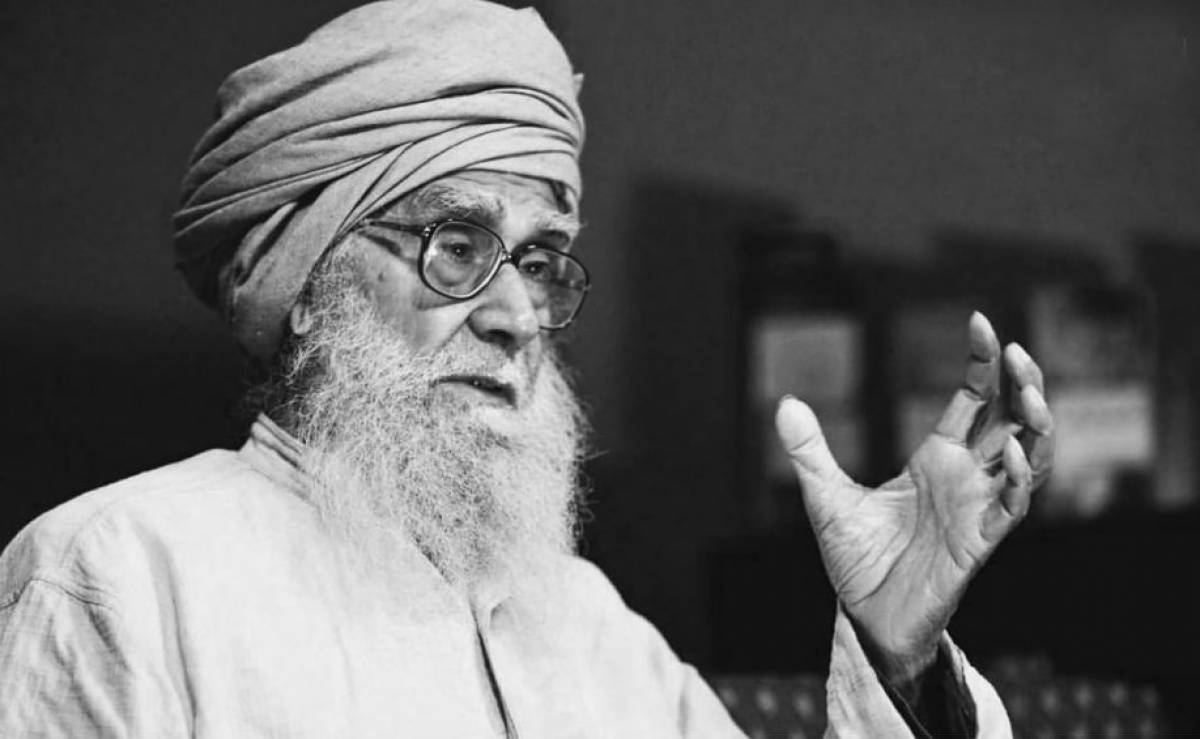Renowned Islamic scholar and peace advocate Maulana Wahiduddin Khan passed away of COVID-19 on Thursday at the age of 96.
Maulana Wahiduddin was the author of over 200 books on Islam and peaceful co-existence in a multi-ethnic society. He was the recipient of numerous awards including the Padma Vibhushan in 2021, the Padma Bhushan in 2010, the Sayyidina Imam Al Hassan Ibn Ali Award, the Demiurgus Peace International Award, the National Citizen’s Award, presented by Mother Teresa and the Rajiv Gandhi National Sadbhavana Award (2009).
Maulana Wahiduddin was admitted to Apollo Hospital in Delhi after he tested positive for COVID-19 on April 12.
“Enter, then, among my servants! And, enter My Paradise!” (Qur’an – 89:27-30). The great Islamic scholar Maulana Wahiduddin Khan breathed his last, late this evening. Doctors failed to revive his sinking heart. Pray for his maghfirat and high station in Paradise. Amin, (sic)” his eldest son and former Chairman of Delhi Minorities Commission, Dr Zafrul-ul Islam Khan tweeted. Enter, then, among my servants! And, enter My Paradise!” (Qur’an – 89:27-30). The great Islamic scholar Maulana Wahiduddin Khan breathed his last, late this evening. Doctors failed to revive his sinking heart. Pray for his maghfirat and high station in Paradise. Amin.— Zafarul-Islam Khan (@khan_zafarul) April 21, 2021
”Deeply grieved by the demise of renowned Islamic scholar Maulana Wahiduddin Khan. A recipient of Padma Vibhushan, Maulana Wahiduddin made significant contribution to peace, harmony and reforms in the society. My deepest condolences to his family and well-wishers,” tweeted President Ram Nath Kovind. Deeply grieved by the demise of renowned Islamic scholar Maulana Wahiduddin Khan. A recipient of Padma Vibhushan, Maulana Wahiduddin made significant contribution to peace, harmony and reforms in the society. My deepest condolences to his family and well-wishers.— President of India (@rashtrapatibhvn) April 22, 2021
Prime Minister Narendra Modi expressed sadness over the death of Maulana Wahiduddin Khan. “Saddened by the passing away of Maulana Wahiduddin Khan. He will be remembered for his insightful knowledge on matters of theology and spirituality. He was also passionate about community service and social empowerment. Condolences to his family and countless well-wishers. RIP.” The 96-year-old scholar had recently tested positive of COVID-19,” he wrote on Twitter. Saddened by the passing away of Maulana Wahiduddin Khan. He will be remembered for his insightful knowledge on matters of theology and spirituality. He was also passionate about community service and social empowerment. Condolences to his family and countless well-wishers. RIP.— Narendra Modi (@narendramodi) April 22, 2021
Born in Azamgarh, Uttar Pradesh in 1925, Maulana Wahiduddin Khan had roots in the family who played a key role in the 1857 struggle for Independence.
Having lost his father at a young age, he was raised by his mother and uncle. Unlike his siblings who were educated in Western-style schools, Wahiduddin received an Islamic education and enrolled as a student at the Madrasatul Islah in 1938, where he focused on the study of the Qur’an and its conception of nature, before graduating in 1944.
In 1949, he joined the Jamaat-i Islami Hind and quickly moved up the ranks of its leadership. As a trained scholar, he took incharge of group’s publishing house in Rampur, writing for the Jamaat’s official journal.
During his time in the Jamaat-i Islami Hind, Wahiduddin Khan published his first book, Naye Ahd Ke Darwaze Par (On the Threshold of a New Era ), in Urdu in 1955.
In 1962, Khan quit Jamaat-i Islami Hind, over ideological differences and joined the Tablighi Jamaat. In no time, he left the Tablighi Jamaat too having grown disillusioned with the group’s rejection of ijtihad (creative rethinking), and perceived arch traditionalism.
This led to him starting his own organisation the Islamic Center at New Delhi, which published in Urdu a monthly Islamic journal called al-Risala, followed later by editions in English and Hindi, to freely express Khan’s ideas.
He has translated the Quran in simple and contemporary English and wrote a commentary on the Quran called the Tazkirul Quran.
Some of his well-known books are In Search of God, Islam Rediscovered, Man Know Thyself, Islam: The Voice of Human Nature, Quran: An Abiding Wonder, Islam and Peace, The True Jihad, etc.
Related
Ghazala Ahmad is the Delhi Correspondent for The Cognate.












































